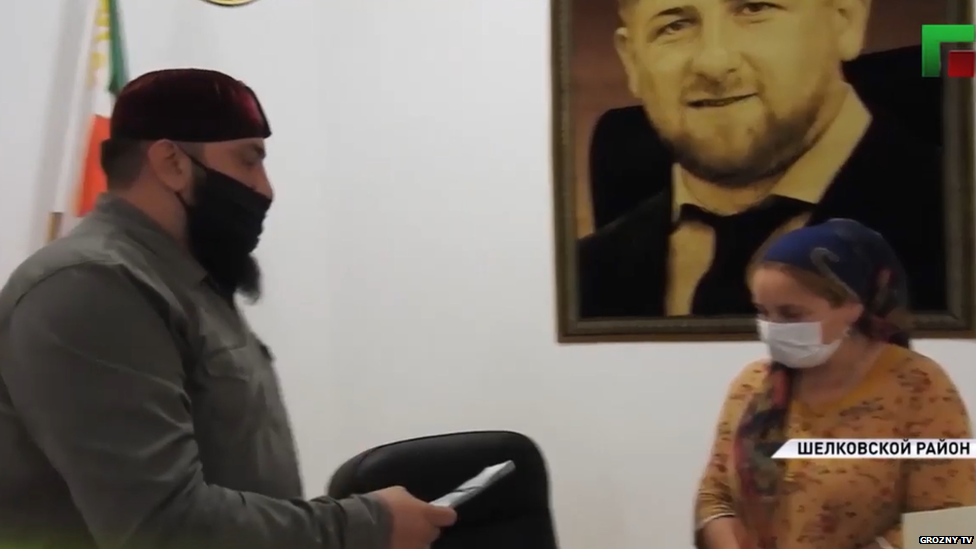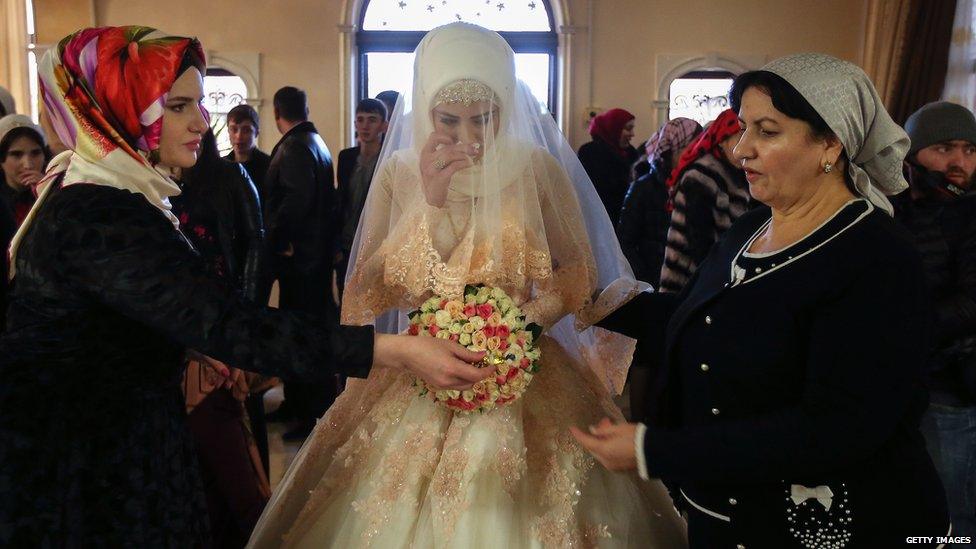Chechnya's ruler gives bride money to hard-up grooms
- Published

Some of the allocated bride money has already reached the intended recipients
A strongman ruler of a Russian region is offering to help men struggling to make traditional pre-nuptial payments because of the Covid-19 pandemic.
Bridegrooms in the predominantly Muslim republic of Chechnya are required to make a payment either to the bride herself or her relatives, according to long-standing custom.
But because of the economic impact of the coronavirus epidemic, many Chechen men cannot afford to make the payment known as "urdu", local media report.
Because of this, Chechnya's leader Ramzan Kadyrov is offering "urdu" money to bridegrooms who do not have it.
He "has made bride money available to 207 grooms , externalwho have been left in need by the quarantine", Russia's official news agency RIA Novosti reports.

See also:

Each of the bridegrooms will get a payment of 50,000 roubles, or more than 700 dollars, the agency says.
The money comes from a charity fund named after Ramzan Kadyrov's father Akhmat.
Grozny TV, the main television station in Chechnya, says that Kadyrov's bride payments have already started to be made, external.
It showed a woman receiving a wad of cash as a portrait of Kadyrov looked on from the wall.
Weddings transformed
Traditional Chechen weddings are lavish affairs, but coronavirus has changed them beyond recognition, local reports say.
Wedding ceremonies were banned in early April and, although the ban was lifted on 25 May, some restrictions remain in place.
"Only two cars are allowed to come to pick up the bride, and the number of guests is limited. This isn't quite what Chechens are used to, because weddings are among the most important festivities, and are normally attended by hundreds of guests," Grozny TV said.

Plans for weddings had to be put on hold during the lockdown
Ramzan Kadyrov is often described as one of Russia's most feared men. He has been accused of intimidating journalists, external and presiding over the persecution of gay people.
Reporting by Vitaly Shevchenko
Next story: Ukraine official spins a tale to highlight corruption